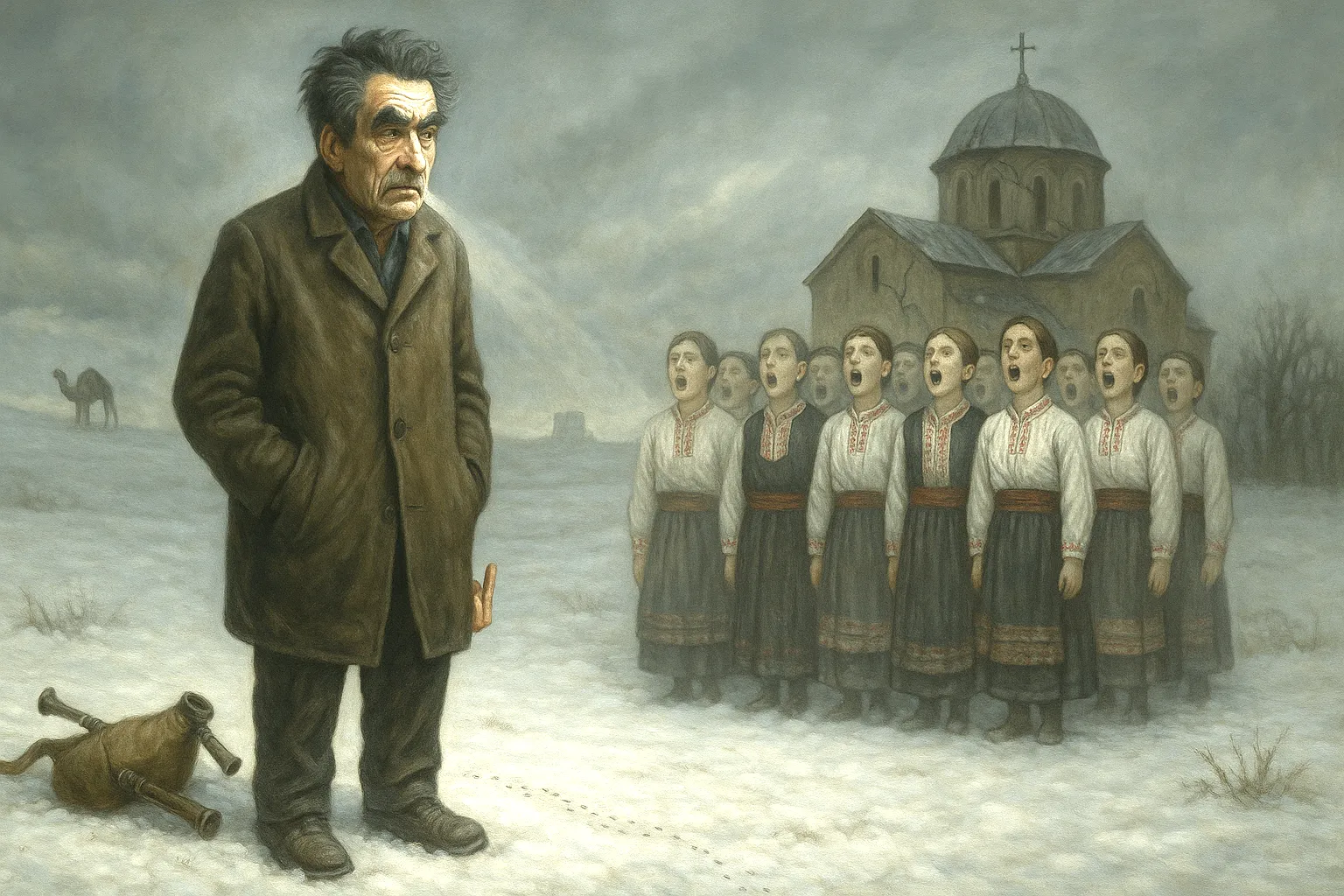Most
Recent
Read
Commented
Bulgarian Self-Image
Yordan Radichkov in the Light of Our National Character

I have a vague but persistent sense that this topic is far more complex and far-reaching than I can fully comprehend. So I’ll keep it brief — at the risk of sounding reductive or superficial. If I weren’t so wary of posturing, I might attempt a longer text. But I am wary — that’s a fact. So I’ll stick to this brief statement. It’s all I can manage, at least for now.
Here it is: to me, Radichkov is one of the clearest examples of the powerlessness of our intelligentsia — not only during the Zhivkov era. And not because he couldn’t write, or because he lacked talent. On the contrary: he’s one of the few genuine masters in our literature. But he lacked the tools — and the conceptual capacity — for rebellion, whether intellectual or otherwise. As long as he was “in agreement,” he could produce marvellous, natural, vibrant prose. The problems began when he ceased to agree.
Here in the Balkans — the former Byzantium — dissent has always had a peculiar texture: blurred, opaque, and conceptually fuzzy. Dissent is muttering — dark, angry, indecipherable muttering. Here, dissent is Bogomilism. Dissent is hesychasm. Still.
To this we must add a more modern feature of our cultural and national psychology: the reverence for what is usually phrased as “the voice of the people is the voice of God.” Bulgarian intellectuals — to the extent they seek recognition and success — are inevitably compelled, to varying degrees, to chase the approval of this invisible demiurge, the people’s voice. In more extreme cases, they even assume the role of its mouthpiece — becoming what we still call, with that refined oxymoron, a “people’s poet.”
(Can one imagine anything more contradictory — more unnatural — than that miracle: poetry for the people? When in fact, real poetry — or at least when it’s real — acts as an icebreaker for the human spirit, cutting a path into places the “people” might reach only decades later, if ever?)
Grandpa Vazov, and to a lesser extent Pencho Slaveykov — when he tried to pass off his own work as if it came “from the people” — are the two clearest examples of this kind of local “success.” In such cases, the results could reach impressive heights — and become eruptions of ethnic chauvinism that today feel, frankly, too awkward to celebrate, let alone admire. (Which doesn’t make them less understandable — perhaps even necessary — in the time that produced them.)
But our culture, our language, our tradition offer no established models for expressing intellectual opposition — let alone rising above — this invisible demiurge. Where a Western intellectual — say, Bertrand Russell — would simply shrug and drop a quip like “If truth belonged to the majority, then the only truth in this world would be that of the ants,” our local equivalent curls inward, scowls, stares at his navel, and starts mumbling in riddles. He dissents — and here, dissent means hesychasm.
Bulgaria, or so it seems to me, is still deeply immersed in the Byzantine tradition — a tradition that neither recognises nor can even comprehend the free individual, independent of the collective. The Turks are barely to blame for this; these things long predate their arrival. Of course, there are exceptions — Aleko and Geo Milev always spring to mind — but they are precisely that: exceptions. And murdered ones. The rule is something else.
Radichkov, too, is something else. A man of talent and conscience — yet with no means to give them full expression. Had he been born in the Czech Republic, he might have become a Havel. Even in Russia, he might have had the chance to turn into someone like Sakharov (not Solzhenitsyn! — Solzhenitsyn, to my mind, is also a child of Byzantium). But here, things are different. And not because Radichkov was a coward or an opportunist — God forbid such cheap talk! It’s simply that the Bulgarian environment lacks the tools to express that kind of stance. Bulgarian rebellion is Bogomilism — not the Declaration of Human Rights.
In Bulgaria, if you disagree, you start to drone like the low pipe of a bagpipe — not to compose your own music, but to disrupt the polished chorus of praise.
And of course, such gestures remain — at best — exotic. Anyone who tells me they found deep joy in something like Verblyud will first have to explain what verblyud even is. I cannot grasp it, no matter how hard I try. I know great allegories — Saramago’s Blindness, Camus’s The Plague — but this is not like them. I’ve heard (though never read) about unreadably long experiments by Frenchmen (Alain Robbe-Grillet), but ours likely isn’t like theirs either. In short: it’s like nothing else on earth.
It is a Bulgarian form of protest — a stubborn wriggling of toes inside heavy boots, fists clenched in pockets, a middle finger flashed behind the opponent’s back. I’m sorry if that sounds nihilistic. I love The Primer, but I have no love for the veneration of things no one truly understands… nor can understand, if what they seek is clarity and conceptual depth.
And still, of course, Radichkov is great. For us. Outside of us — and perhaps even among us — I fear he remains utterly untranslatable. We’re left with the consolation that at least he is ours. It could have been worse. Far, far worse. I myself, without question, would rather come from a country with a Radichkov than without. But that doesn’t make him any clearer — or closer — amidst the vast sea of verblyudi.
That’s all — for me, at least.
May 2011
